This five-day, on-campus course explores how Chinese evolved in the medieval period, its interaction with Sanskrit in Buddhist translations, and the role of Buddhist Hybrid Chinese in shaping medieval texts. In addition, text corpora and digital resources for the study of pre-modern Chinese will be discussed. The course assumes a background in Classical and Modern Chinese, as well as a strong interest in Chinese Historical Linguistics. Lectures will be primarily conducted in Chinese, with supporting readings and materials in English. Students are welcome to present in either English or Chinese.
Date: October 27–31, 2025
Venue: Ghent University
Organizing committee: Prof. Dr. Christoph Anderl and Longyu Zhang
We are pleased to award a tuition fee waiver and scholarships for a maximum of four international PhD students.* To apply, please send a one-page motivation letter and your CV to Christoph.Anderl@ugent.be and Longyu.Zhang@ugent.be by September 28. The selected candidates will be notified by October 1.
* The four scholarships consist of a fee waiver and a travel subsidy:
2 x 800 EUR (long-distance)
2 x 400 EUR (within Europe)
Lecturers:
Prof. Chirui Hu, Peking University
Prof. Chiafei Lin, National Taiwan University
Prof. Christoph Anderl, Ghent University

Doctoral School Programme (version 2025-09-26)
Monday 27th October: Sanskrit and Buddhist Hybrid Chinese: Part 1
10:00-10:15: Welcome (Anderl)
10:15-12:00:梵漢對比研究:理論、方法與實踐[Sanskrit-Chinese Comparative Studies: Theory, Method, and Practice] (Lin)
13:30-14:30: 梵漢對音[Sanskrit-Chinese Transcription] Part 1 (Lin)
14.50-16.00: 梵漢對音[Sanskrit-Chinese Transcription] Part 2 (Lin)
Tuesday 28th October: Buddhist Hybrid Chinese: Part 2 / Students’ Presentations
10:00-11:00: 梵漢對比語法 [Sanskrit-Chinese Contrastive Grammar] Part 1 (Lin)
11:00-12:00: 梵漢對比語法 [Sanskrit-Chinese Contrastive Grammar] Part 2 (Lin)
13:30-16:00: Students’ Presentations (with discussions; moderators: Anderl / Hu / Lin)
Wednesday 29th October: Buddhist Hybrid Chinese and Non-canonical Dunhuang Manuscripts
10:00-12:00: The Development of Interrogatives in Middle Chinese: An Overview (Anderl)
13:30-15:00: Between Sound and Meaning: Observations concerning 9th/10th Century Semi-colloquial Chinese (Anderl)
15:30-17:00: Students’ Presentations (moderators: Anderl / Hu)
Thursday 30th October: Introduction to Chinese Historical Linguistics / Middle Chinese
10:15-12:00: 中古漢語及其分期 [Periodization of Middle Chinese] (Hu)
13:30-15:00: 两漢漢語概貌 [The Chinese of the Han Dynasty: an Overview] (Hu)
15:30-16:30: 中古漢語的語言環境 [The Linguistic Context of Middle Chinese] (Hu)
Friday 31st October: Primary Sources and Corpora for Research in Pre-Modern Chinese
10:00-12:00: 材料的真實性與口語性 [Discussion on the Authenticity of Primary Sources and their Colloquial Features] (Hu)
13:30-14:30: 兩類事件結構 [Two Types of Event Structure] (Hu)
14:50-16:00: Seminar/discussion: Corpora for Research in Chinese Historical Linguistics (moderators: Anderl / Hu)
Lecturers
Chirui Hu, Professor at the Department of Chinese Language and Literature, Peking University
Chirui Hu 胡敕瑞 is a specialist in Chinese Historical Linguistics with a primary focus on Chinese translated Buddhist texts and excavated texts. His first book A comparative research on the lexicon in Lunheng and Buddhist scriptures from the Eastern Han dynasty (Bashu shushe, 2002) investigates the distinctions of lexicon between classic literature written by native Chinese literati and translated Buddhist literature produced in the Eastern Han dynasty. This monograph provides not only a synchronic description but also reveals diachronic changes through comparison, which filled the gap in research on Middle Chinese lexicon at that time, as compared to phonology and grammar. In addition to his research on lexicon, he has also written extensively about the syntax of Archaic and Middle Chinese and its interaction with lexicon. He has been actively involved in several major research projects. In 2006-2009, he participated in the project “The Evolution of Verbs in Old to Middle Chinese: Mechanisms and Influence.” Between 2005 and 2008, he contributed to the project “Language Contact and Comparative Studies on the Grammar of Chinese Buddhist Translations: Based on Sanskrit–Chinese Collation.” In 2014-2017, he directed the project “Lexical and Grammatical Studies of Old Chinese Based on Excavated Texts.” In 2018–2022, he directed the project “Research on Historical Grammar and Lexicology Based on the Ancient Chinese Semantic Corpus”.
Chiafei Lin, Assistant Professor at the Department of Chinese Literature, National Taiwan University
Chiafei Lin 林家妃 received her PhD in Chinese Linguistics from the Department of Chinese Literature at National Tsinghua University. Her research primarily focuses on comparative grammar and phonology of Sanskrit and Chinese, with particular attention to Buddhist scriptures in Chinese translation and their Sanskrit originals. Her doctoral dissertation examines the Vimalakīrti Nirdeśa Sūtra and its three major Chinese translations, from the Three Kingdoms, Later Qin, and Tang periods, and analyzes sentence structures and translation strategies through a comparative method. The study highlighted how long-term contact between Sanskrit and Chinese shaped the development of Chinese syntax, especially the shift from parataxis to hypotaxis and the strengthening of topic-prominent constructions. Dr. Lin has published on issues of syntax and translation in Chinese Buddhist texts. Her recent works include “The Composition of Telescopic Chains with the ‘Yu與 O + Ju俱’ Clause in Chinese-Translated Buddhist Scriptures and Reasons for Its Construction” (Chinese Studies 40.2, 2022), and “Constituent Order of Vocative Expression and Its Punctuation in Vimalakīrti-nirdeśa Sūtra of Zhi Qian’s Translation Version” (Taiwan Journal of Buddhist Studies 43, 2022).
Christoph Anderl, Professor at the Department of Languages and Cultures, Ghent University
Christoph Anderl specializes on medieval Chinese manuscript culture, Buddhist Chinese, and various topics related to the development and adaptation of Chinese Buddhism during the Tang and Five Dynasties periods. During the last years, his focus has been on the study of modes of representation of Buddhist narratives in textual and visual media, including methodological and theoretical issues concerning the interrelation of text and image. In this context, he has also acted as leader of the Research Cluster “Typologies of Text-Image Relations” in the large UBC-based interdisciplinary project “From the Ground Up: Buddhism and East Asian Religions”, with ca. 30 participating universities. In order to study text-image relations and modes of representations in specific contexts, he has organized several conferences/seminars, as well as conducted fieldwork in China and Thailand, leading groups of participants from international universities. Anderl is also the editor-in-chief of the “Database of Medieval Chinese Texts”, specializing on the digital edition and mark-up of non-canonical Dunhuang manuscripts; the DB also features one of the largest depositories of premodern character variants.




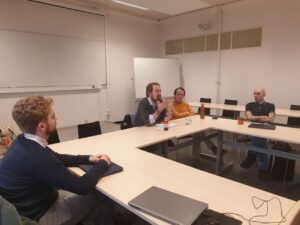
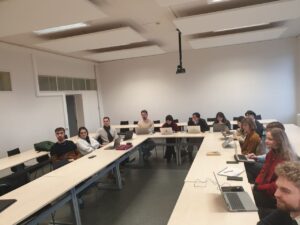
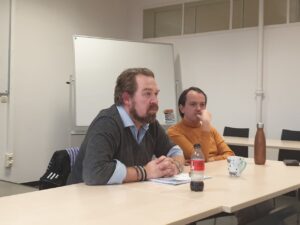
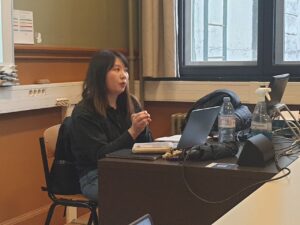
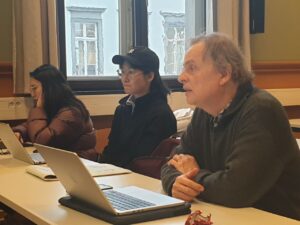
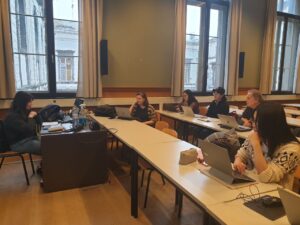

 Arghyadip Mondal
Arghyadip Mondal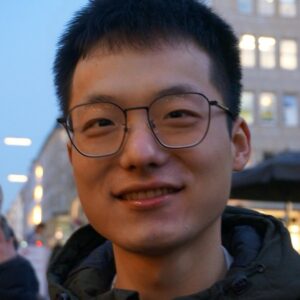
 We are pleased to welcome
We are pleased to welcome 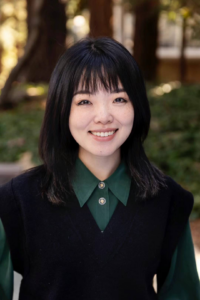 We are welcoming a new member of the Ghent Centre for Buddhist Studies: FWO junior postdoctoral fellow Dr.
We are welcoming a new member of the Ghent Centre for Buddhist Studies: FWO junior postdoctoral fellow Dr. 












 Please join us in welcoming Dr.
Please join us in welcoming Dr. 




